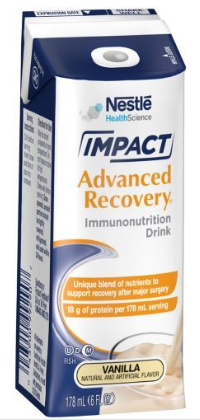Preparing for Surgery
Improving your nutrition, exercising, and preparing for the day of your surgery are ways that you can help improve your surgery outcome.
Research shows that patients who “prehabilitate” for surgery have fewer post-operative complications and quicker recovery back to their previous functional level.
Proper nutrition before surgery has a significant impact on recovery.
- Include more plant-based foods. Consume 5 or more servings of fruits and vegetables daily. Make at least half of your grains whole grains. These foods provide important vitamins, minerals, antioxidants, and fiber.
- Include whole foods, and try to avoid pre-packaged and processed foods.
- Eat 3 to 4 ounces (25-30 grams) of lean protein at every meal three times per day.
| Food | Protein |
|---|---|
| 5-6 oz. low fat Greek yogurt | 10-15 g |
| ½ cup low fat cottage cheese | 14 g |
| 1 can tuna, 3 oz | 25 g |
| 1 chicken breast (3oz.) | 21 g |
| 1 egg | 6 g |
| ½ cup tofu, beans & lentils | 7 g |
| ½ cup Quinoa or brown rice | 2-4 g |
| ¼ cup nuts & seeds | 7 g |
| 1 scoop whey protein powder | 15-25 g |
Eat probiotic-containing yogurt or kefir daily that has one or more of the following: L. rhamnosus, L. casei, L. plantarum, L. reuteri.
Beginning 5 days before your surgery:
Drink three cartons of Impact ARÒ every day between meals, for a total of 15 cartons.
Where to purchase: OHSU pharmacies or VA for veterans
Home Delivery: Nestle Nutrition 1-888-240-2713 Discount code: 10573

The 3-4 weeks before your operation is the best time to train your body for surgery with regular aerobic exercise, strength training, and balance exercises.
Physical Activity Goals Before Surgery:
- Exercise 30 minutes per day. It can be continuous or broken up into multiple sessions.
- Do strengthening exercises 3 days per week. Try every other day.
How hard should you be working when you exercise?
You should be exercising at a moderate pace. This means, during your daily 30 minutes of exercise you should be able to carry on a conversation.
Exercise examples
- Aerobic exercise
- Walking, biking, swimming, canoeing, mowing the lawn
- Strength training
- Light weights (3-10lbs), squats, bands
- Reference: 1 gallon of milk is 8lbs
- Balance
- Yoga, sit to stand, walk one foot in front of the other
There are important steps to take as you approach your surgery date. Read more about how to prepare for surgery.
When you are in the hospital:
- You will be expected to walk 3 times per day and sit in a chair for meals to prevent complications and get you ready for home
- The physical therapist will visit you in the hospital and assist you with exercises and walking
- The occupational therapist may visit to assist you with dressing and self-care
Review of post-operative precautions:
- No bending, or twisting
- No lifting more than 10lbs. for 6-8 weeks after surgery
Log rolling in and out of bed
Ask your doctor for a referral or, for more information, access these links:
Contact us
The Digestive Health Center is located on the 8th floor of the OHSU Center for Health & Healing Building 2.
- Phone: 503-494-4373
- Fax: 503-418-4189
Patient care locations
Center for Health & Healing Building 2
3485 S. Bond Ave.
Portland, OR 97239
OHSU Hillsboro Campus | Hillsboro Medical Center Digestive Health
7th Ave. Medical Plaza
333 S.E. 7th Avenue, Suite 5200
Hillsboro, OR 97123